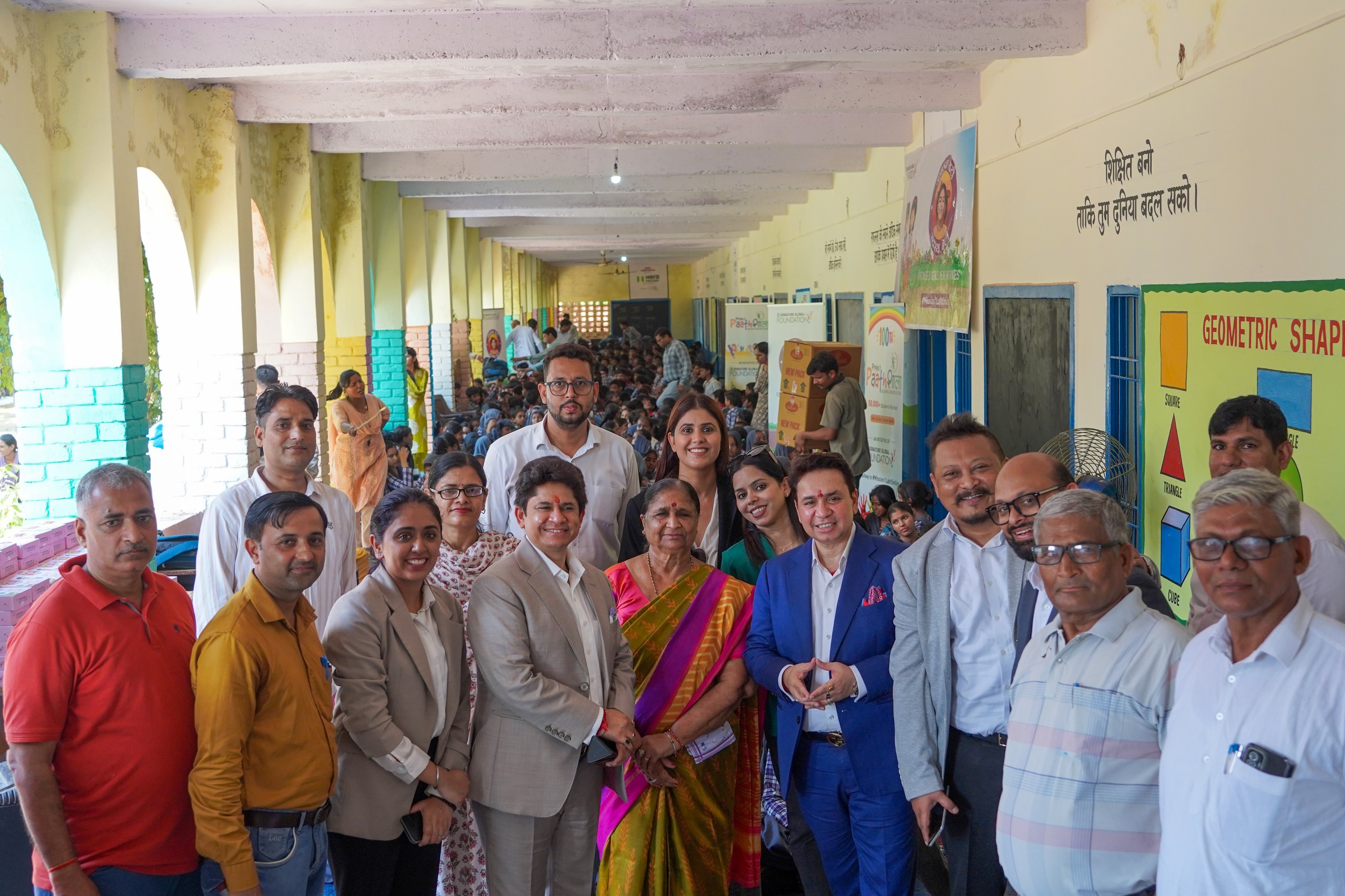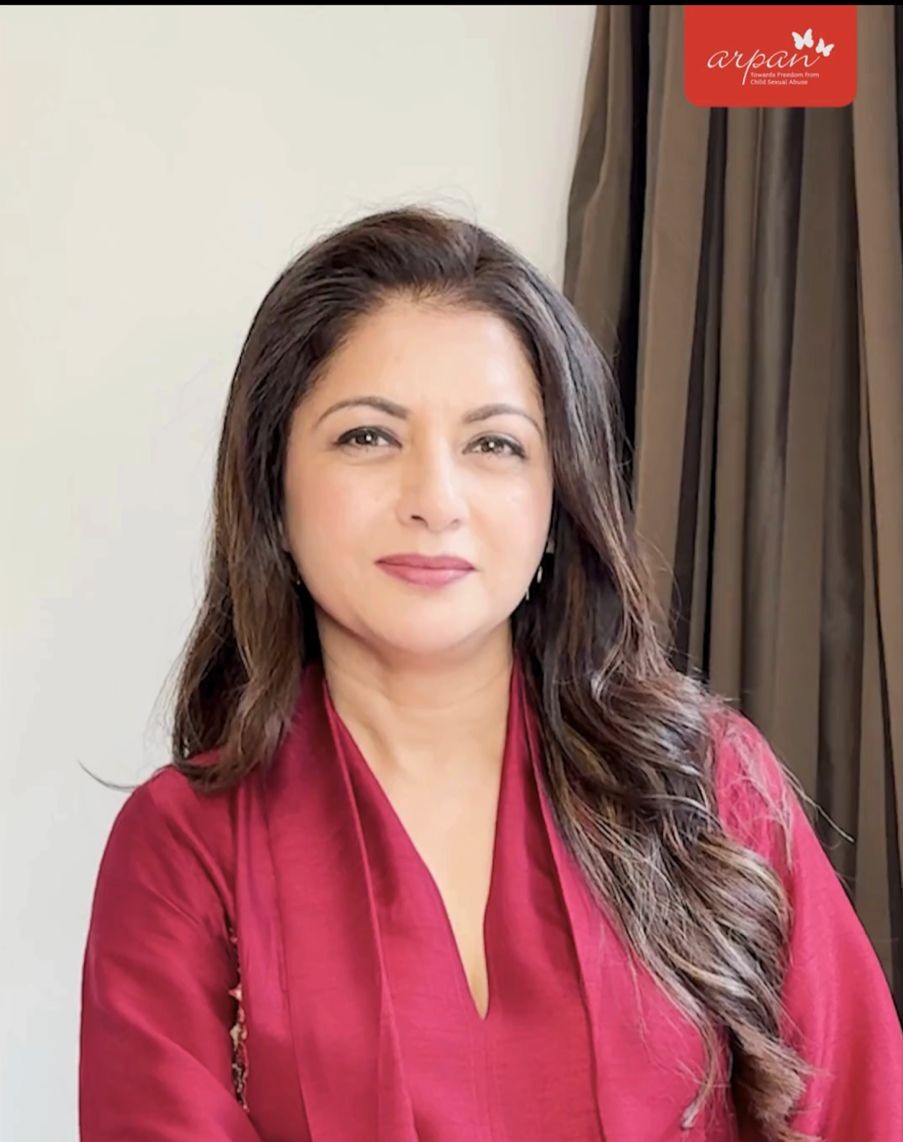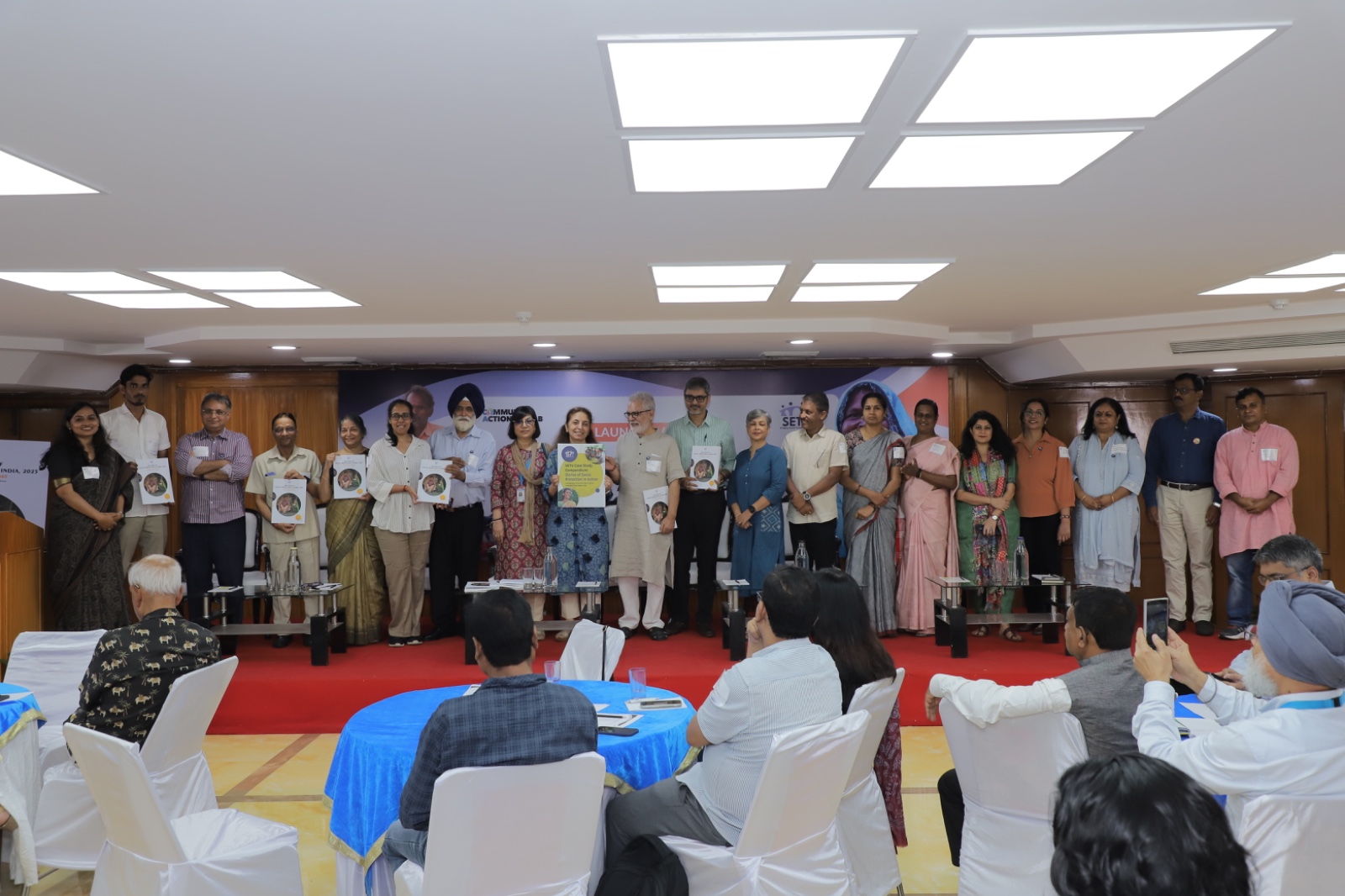Subscribe our Weekly Newsletter
RFP - Endline Assessment of Strengthened ecosystem for gender equality in India

Organization: UN Women
Apply By: 06 Oct 2025
About the Organization
UN Women exists to advance women’s rights, gender equality, and the empowerment of all women and girls. As the lead UN entity on gender equality, we shift laws, institutions, social behaviours, and services to close the gender gap and build an equal world for all women and girls.
UN Women is the global champion for gender equality, working to develop and uphold standards and create an environment in which every woman and girl can exercise her human rights and live up to her full potential. We are trusted partners for advocates and decision-makers from all walks of life, and a leader in the effort to achieve gender equality.
About the Proposal
Endline Assessment of Strengthened ecosystem for gender equality in India project
Background:
Achieving gender equality and women’s empowerment is a key goal of the 2030 Agenda for Sustainable Development. In India, however, gender inequality remains deeply entrenched across class, caste, religion, and geography, driven by patriarchal norms embedded in institutions including the family. These norms limit women’s mobility, autonomy, and access to opportunities. Women face systemic barriers such as minimal participation in public decision-making due to political bias and violence, invisibility in the economy due to unrecognized unpaid labour, and widespread violence at all life stages. Additionally, access to resources and social protections remains limited, and budgetary allocations for gender equality are insufficient and poorly utilized.
Although India has implemented legal reforms, fast-track courts, helplines, and civil society support to address gender-based violence, these punitive measures are not enough. More needs to be done to close gaps in areas like unpaid care work, gender pay inequality, land rights, digital skills, and access to markets and finance. Socio-economic barriers and weak institutional accountability hinder the impact of policies and programs. To empower women and break cycles of inequality, India must invest in gender responsive strategies and foster collaboration among governments, civil society, media, and institutions to create sustainable and inclusive development.
The UN Women India Country Office has implemented a catalytic accelerator project to advance women's social, economic, and political empowerment in alignment with the 2030 Agenda, particularly Sustainable Development Goal 5 (gender equality). The initiative aimed to strengthen women’s leadership across sectors by addressing interconnected challenges such as violence, economic marginalization, and political exclusion. This TOR outlines the final evaluation approach for a comprehensive evaluation of the project titled “Strengthened ecosystem for gender equality in India”, is being implemented by UN Women India Country Office with support from the Bill & Melinda Gates Foundation during October2022-April 2026.
The project is structured around four key strategic approaches:
Strengthening International Norms and Standards: Grounded in human rights frameworks such as the Convention on the Elimination of All Forms of Discrimination Against Women (CEDAW) and the Beijing Declaration, the project supported legal and policy commitments to gender equality. It emphasized state accountability at all governance levels and promoted initiatives like the Generation Equality campaign, focused on feminist leadership, economic justice, and eliminating gender-based violence.
Partnerships: The project placed collaboration as its core, strengthening partnerships with government institutions, civil society, UN agencies, and grassroots movements to advance gender equality and women empowerment. These partnerships enabled effective advocacy, technical support, and implementation efforts to foster inclusive, community-based participation.
Financing Gender Equality: The project enhanced gender-responsive budgeting by supporting national and state governments in institutionalizing gender budgeting tools to track funding and outcomes for women’s empowerment.
Gender-Responsive Data and Evidence: Data collection and analysis to support improved gender budgeting and inform policy decisions. Develop a Gender Budgeting Index with the Ministry of Women and Child Development to monitor progress effectively. The project is being implemented at the national level and in seven States of India. At the national level, the project strengthened intergovernmental processes and programmes, and reinforced India’s engagement with national and international norms and platforms to which it is a signatory. Targeted interventions were carried out in the states of Assam, Goa, Haryana, Maharashtra, Madhya Pradesh, Tamil Nadu, and Uttarakhand with a focus on gender responsive budgeting and ending violence against women through system-strengthening approaches. The project implementation focused on the following key outcomes:
Promoting gender equality through Stronger institutional adoption of gender-responsive frameworks and policies, ensuring women’s economic justice and rights in flagship employment and social protection programmes: Under this outcome, the project aimed to achieve two key sub outcomes: 1) Localization of normative frameworks through multistakeholder engagement and 2) capacity building of relevant ministries to adopt and implement gender policies for flagship programmes on employment and social protection, ensuring economic justice and rights for women. The key activities included building young feminist leadership through the capacity building of 300 intergenerational leaders and the establishment of multi-stakeholder learning platforms, such as Communities of Practice (CoP) and regional feminist labs. The project also launched youth-led, state-level Generation Equality Forums (GEFs) and co-created operational guidelines to advocate for gender equality priorities at the sub-national level. These efforts engaged directly with local decision-makers to advance commitments aligned with SDG 5, CEDAW, and the Beijing Platform for Action.
Ending violence against women through scale up and strengthens gender-responsive policies and programmes: This outcome focused on strengthening both prevention and response mechanisms to address violence against women and girls in public and private spaces, with an emphasis on community and district levels. Aligned with the Government of India’s efforts on Smart Cities initiatives and the One Stop Centers (OSCs) scheme, this component aimed to scale up gender-responsive policies and services that enhance safety, mobility, and access to support services. The key activities included the development of a comprehensive GBV prevention and response strategy, strengthening capacity and outreach of OSCs, equipping district hospitals and frontline workers with trauma-informed training, and institutionalizing survivor-centred approaches and practices within the justice sector.
Strengthening gender-responsive national/regional planning and budgeting: This outcome focused on strengthening institutional mechanisms for gender-responsive planning, budgeting, and monitoring across national ministries and State/UT governments. The project supported 44 ministries and seven States/UTs to in developing action plans and building capacity to integrate gender perspectives into budgetary processes. Key activities included reviewing budget allocations, strengthening Gender Budget Cells (GBCs), and institutionalizing formal mechanisms for sustained gender-responsive implementation. In collaboration with the Ministry of Women and Child Development (MWCD) and the Ministry of Finance (MoF), the project promoted sector-specific gender budget assessments, facilitated knowledge exchange through the rollout of a national Gender Budget Dashboard, and conducted targeted training for national and state officials through nodal training centers.
Gender equality is mainstreamed into G20 priorities through enhanced awareness and strengthened capacity of the Indian government during its 2023 Presidency.: This outcome focused on enhancing the capacity of government institutions, civil society organizations, and intergovernmental bodies, particularly within the G20 framework, to prioritize gender equality and women’s empowerment in national, regional, and global commitments. During India’s G20 Presidency, UN Women served as the knowledge and technical advisor for both the G20 and W20 processes, offering strategic support to MWCD and other key ministries. The project strengthened inter-ministerial coordination, built inclusive dialogue platforms, and facilitated policy engagement through advisory services, strategic convenings, and knowledge sharing. It also advanced India’s leadership on gender through tools such as a Gender Index, multistakeholder consultations, and youth- and women-led platforms like Youth20 and W20. Furthermore, the project built the capacities of Indian parliamentarians on gender norms, legal frameworks, and international commitments such as CEDAW, to advance gender-just laws and policy implementation. Through cross-sectoral dialogue and institutionalization of best practices, this pillar aimed to mainstream gender across G20 tracks and strengthen India’s legacy as a leader in global gender governance.
Objectives of the Evaluation:
The project is expected to conclude by April 2026. To assess its overall performance and generate actionable insights, UN Women India Country Office proposes conducting a final evaluation focused on evaluating the project's efficiency, effectiveness, relevance, sustainability, and scalability across its thematic pillars. The evaluation will be grounded in a feminist and intersectional approach, placing particular emphasis on understanding how the project’s outcomes have impacted women and girls differently based on intersecting social identities such as caste, class, geography, age, religion, ability, and other contextual factors. By applying an intersectional lens, the evaluation will explore whether the project has effectively reached and benefited the most marginalized groups, identify systemic barriers that may have limited access or participation, and assess the adaptability of successful models for scaling. The findings will inform future programming, strengthen accountability to rights holders and partners, and contribute to evidence-based policy advocacy at national and sub-national levels.
The specific objectives are:
- Assess the extent to which the project has achieved its intended outcomes and key results across all thematic areas, considering variations among stakeholders by caste, class, disability and other intersection identities.
- Assess to what extent the program influenced young women’s decision-making power, voice, and agency at the institutional, community, and individual level.
- Identify enabling and hindering factors affecting the achievement of results, particularly around institutional capacity, multi-stakeholder collaboration, and policy influence.
- Document best practices through success stories, lessons learned, and models that have demonstrated measurable change.
- Provide strategic, evidence-based recommendations for sustainability, scale-up, and future programming.
Eligibility
Organizational Capacity:
- At least 5 years of demonstrated experience in conducting gender-focused research, evaluations, or assessments, preferably in the domains of violence against women, gender responsive budgeting, and systems assessments.
- Proven experience in undertaking mixed-methods research, including both quantitative surveys and qualitative data collection (Key Informant Interviews, Focus Group Discussions, Case Studies) and participatory evaluations at national and/or state levels
- Experience in working with diverse stakeholders, including government departments, community-based organizations, private sector partners, and women’s collectives.
- Ability to deliver high-quality analytical reports with actionable recommendations, incorporating both quantitative and qualitative data triangulation.
- Demonstrated knowledge of and experience in applying international gender equality frameworks such as CEDAW, Beijing Platform for Action (Beijing+25), Generation Equality Forum commitments, Sustainable Development Goals (SDGs), and related UN and intergovernmental gender mainstreaming standards will be preferred.
Human Resource Requirements: The consulting firm is expected to mobilize a multi-disciplinary team with demonstrated expertise in gender equality, evaluation, and policy analysis.
Team leader:
- Education: Master’s Degree in a relevant field, such as Gender Studies, International Development, Public Policy, Economics, Social Sciences, Statistics, or related discipline.
- A minimum of 10 years of experience in designing and managing gender-focused research, evaluations, or policy analysis in relevant thematic areas, including violence against women, gender-responsive budgeting, leadership development, and systems assessments.
- Proven expertise in mixed-methods evaluation, participatory and gender-sensitive methodologies, and stakeholder engagement at national and sub-national levels
- Must have prior experience managing multi-disciplinary teams, ensuring quality assurance, and delivering high-quality analytical reports for UN agencies, international NGOs, or similar organisations.
- Fluency in English is a must.
Team composition:
- The proposed team should include a team leader/ principal investigator, a senior gender specialist, a quantitative research specialist, a qualitative research specialist, a gender budget specialist, a field coordinator, and research investigators.
- Language skills or access to qualified translators/interpreters fluent in the languages where the evaluation will be conducted.
- Strong report writing and presentation skills.
Geographical Scope: Assam, Delhi, Goa, Haryana, Madhya Pradesh, Maharashtra, Tamil Nadu, and Uttarakhand.
How to Apply
Complete proposals must be received by UN Women in the manner, and no later than the date and time, specified in this document and the RFP. If any doubt exists as to the time zone in which the Proposal should be submitted, refer to http://www.timeanddate.com/worldclock/. It shall be the sole responsibility of the vendors to ensure that their proposal is received by UN Women by the closing date and time. UN Women shall accept no responsibility for proposals that arrive late due to the courier company or any technical issues and shall only recognize the actual date and time that the proposal was received by UN Women. Any proposals received after the stipulated deadline will be rejected.
Deadline on: 06-Oct-2025 08:00 (GMT -4.00)
For more information please check the Link
Stay in the loop with the newest RFPs and Grants through NGOBOX's WhatsApp Channel. Join now by clicking here!
Latest Online Store
Latest Grants
Latest News
© Renalysis Consultants Pvt Ltd



























